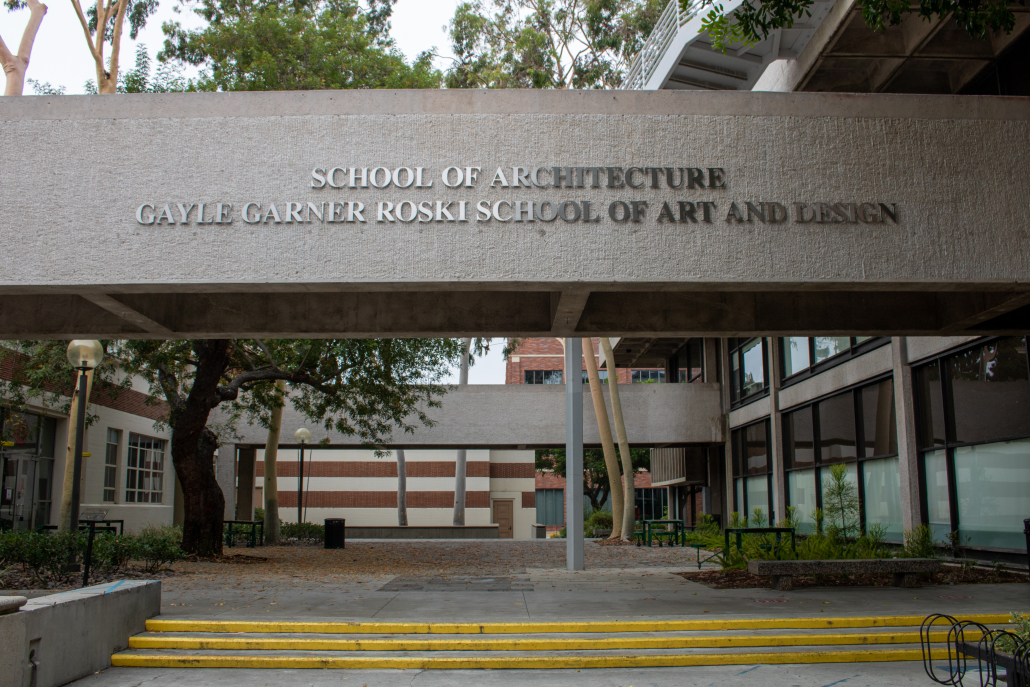New USC course explores America’s national parks

Growing up in Florida, Douglas Noble remembers frequent visits to national parks. He has filled his blue national park passport book with so many stamps that he can’t name a single favorite park.
Now a professor of architecture, Noble, along with his colleague Karen Kensek, have worked with the National Park Service at Joshua Tree National Park for more than a decade, where they’ve taken students on camping trips and recently designed a prototype restroom to replace the typical concrete boxes found at national parks. With their knowledge and admiration for the parks, Noble and Kensek designed a new course titled “An Exploration of America’s National Parks,” which they plan to offer this spring.
The course will be taught by more than 25 professors from a wide variety of departments — including history, geology and music — and will take an interdisciplinary approach to learning about America’s 63 national parks. Although it is housed in the School of Architecture, the course will be open to students of all majors and require no prerequisites.
The course will be split into seven modules, each with five to eight speakers. Each week a new group of lecturers will bring a new lesson on topics such as the history of the parks’ establishment and the music of Yellowstone.
Noble, who also serves as the Associate Dean of the School of Architecture, said the origins of the course date back to about five years ago, when he was selected to go to USC’s Center for Excellence in Teaching, a campus institute aimed at supporting faculty in teaching development.
At the institute, Noble met professors from several different departments, which he hadn’t had many opportunities to do beforehand. He began talking about his love for national parks and met several other professors who shared that passion. Soon after, a wide range of professors formed a group which shared one thing in common: a deep appreciation for national parks.
According to Noble, it wasn’t hard to find the initial set of professors for the course. “People just love national parks,” he said. “We found lots and lots of folks.”
To match the course’s wide range of professor disciplines, Noble said he hopes to enroll a similarly diverse group of students.
“If there are 100 [students enrolled], maybe seven architects would be a good number; three geologists, four archaeologists, two musicians and a couple of art students,” Noble said.
The course will also involve collaborative work between students of different disciplines. They’re planning for team-based assignments, where a small group of students across majors would collaborate to research a national park.
Among the dozens of lecturers lined up for the course is President Carol Folt, who commended the course’s interdisciplinary approach and expressed excitement to share her unique perspective.
“Interdisciplinary courses such as these represent a unique opportunity to bring together diverse perspectives and ultimately foster appreciation and respect between disciplines,” Folt wrote in a statement to the Daily Trojan. “At USC, we are privileged to be able to bring together expert faculty from across a variety of fields to examine our national parks, and as an environmental scientist, I’m excited about the chance to share my own passion for these national natural treasures with our students.”
History professor William Deverell said the course will give him the “great opportunity to show how the rise of the parks is fundamentally tied to other issues in the history and culture of 19th century America.” Writing professor Deborah Sims said she plans to teach students “how nature writers shaped the founding legislative protections which established National Parks, and the ways that their rhetorical approach continues to influence the conceptualization and consumption of nature in the 21st century.”
Michael Johns, a junior majoring in philosophy, politics and economics, grew up going to the Great Smoky Mountains National Park in Tennessee and North Carolina. Originally from Atlanta, Ga., he recently developed an appreciation for Western national parks and is interested in how the course will discuss the national parks’ history with Indigenous peoples.
“I think it’d be cool to hear about the history relating to Indigenous peoples and … how the national parks went along with American imperialism,” Johns said.
Axel Sánchez Sigala, a freshman majoring in business administration, lived in Joshua Tree, Calif., a town located right outside of the national park of the same name, for more than 10 years. Sigala said he’d like the course to discuss how these “gateway towns” interact with the parks they border.
“I think [bordering towns] tell a story about the national park and how it evolved,” Sigala said. “Although the class focuses mostly on the national park itself, I feel like if you branch out a little bit and explore, take a deep dive into the actual history of how the town originated [and the] smaller communities around it, that’d be a interesting angle, and something that’d actually be pretty fascinating to learn about.”
Noble himself looks forward to sharing an architectural perspective of the parks. He often looks to the visitor centers as a representation for the architecture of a park.
“There are lots of strongly held positions on new visitor centers [in the parks],” Noble said. “It’s a national park, so it has to be architecture at the absolute highest standards, but it should be architecture that doesn’t call attention to itself.”
Noble’s end goal with the course stems from going to national parks as he grew up, and his desire to increase awareness and access to the parks among a more diverse set of people.
“You’ve got whole groups of people whose parents didn’t do that. There’s no tradition of sort of diversity, equity [and] inclusion in going to these places,” Noble said. “I want to build a whole new generation of national park lovers who will come to their defense, who will fight for keeping them, taking care of them, properly funding them, and visiting them.”

